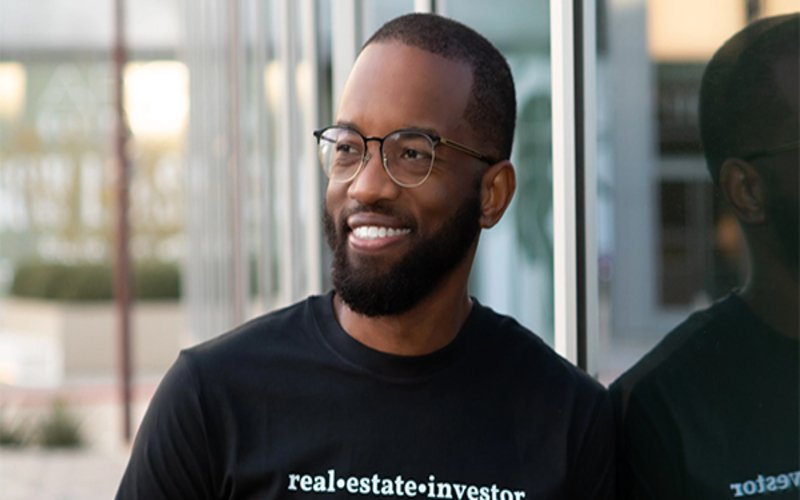The Black Real Estate Dialogue [BRED] podcast’s creator and presenter, Sam Dolciné, aims to assist African Americans in gaining access to equity and generating generational wealth through real estate investing. Sam, who resides in Los Angeles and is originally from Brooklyn, New York, has a talent acquisition and human resources history.
Sam started shopping for property in October 2019 after realizing his 401K wouldn’t provide enough equity to retire comfortably. When studying the issue, he was discouraged to find that black investors provided no resources.
“Real estate is one of the most dependable ways to build wealth,” he says. Information opens doors, but the Department of Housing and Urban Development lists financial literacy as one of numerous obstacles preventing Black Americans from becoming property investors. Many people find it challenging to comprehend specifics like mortgage terms, assessments, possibilities for down payments, government programs, insurance needs, terminology, and real estate fundamentals. Some people get into difficulties while only looking for certain information.
His podcast is intended to assist homebuyers of all races who are struggling with bad credit and a lack of resources, but especially Black homebuyers who, for decades, have been subject to unfair and unscrupulous government regulations that were race-specific and made it difficult or impossible for Black Americans to participate in the American Dream.
Redlining was a kind of discrimination whereby the mortgage industry refused to make loans to high-risk neighborhoods because of their large populations of black and brown people. Redlining prohibited black Americans from acquiring property before the Civil Rights Movement and the Fair Housing Act of 1968. The Community Reinvestment Act was enacted in 1977 to encourage banks to assist the neighborhood around their location to combat the practice of “redlining.” Before this rule was enacted, banks could establish themselves where citizens were prohibited from purchasing real estate and reaping the financial benefits.
Sam observes that “more Black individuals are renting from landlords than owning homes because of the problems that lasted over fifty years ago. Black Americans are the minority group least likely to invest in real estate or buy homes. As a people, we can affect history by educating ourselves about it, even though we cannot change the past.
Sam claims that he founded Black Real Estate Dialogue to serve as a platform for the black community to share knowledge and to pave the way for generational prosperity for all of us. To record and share the success stories of black real estate investors, he turned to design expert Joshua A. Foster. The podcast, which focuses on how these investors got started, was released in 2019. In the first episode, Dolciné interviews the CEOs of Nelson Properties & Acquisitions, LLC, a husband-and-wife partnership.
Later, Sam interviews Don Peebles and Victor MacFarlane, two of the top black developers in the nation, and Page Turner from HGTV’s Fix My Flip. Sam explains, “We aim to assist black investors initially.” “So, it is often one of the first things I ask throughout every interview. How did you start?
Currently, the BRED platform has more than 83,000 Instagram followers (@BlackRealEstateDialogue) and 150 in-depth interviews that can be found on YouTube, Apple Podcasts, and Spotify. It provides Black families with the necessary resources to begin going and cheap, easily understandable online real estate courses. The BRED network is intended for first-time homeowners, prospective investors wishing to buy and develop land, and individuals interested in enhancing their retirement possibilities by investing in residential or commercial property.
“Black people have a good chance of succeeding in real estate investing. If you’re impoverished, it doesn’t matter. It makes no difference where you begin. Real estate investing is possible, and we have over 100 examples to back this up, adds Sam. “I’ve discovered that discipline, not a huge financial account, is what you need. We are ready and able to demonstrate for you. We speak with Black investors who kindly give us a glimpse into how they operate. The procedures are being shared.
It necessitates a leap of faith, he says. And because of this, everyone in our community must support one another, believe in ourselves, and act appropriately. There is no stopping us once we do it.

